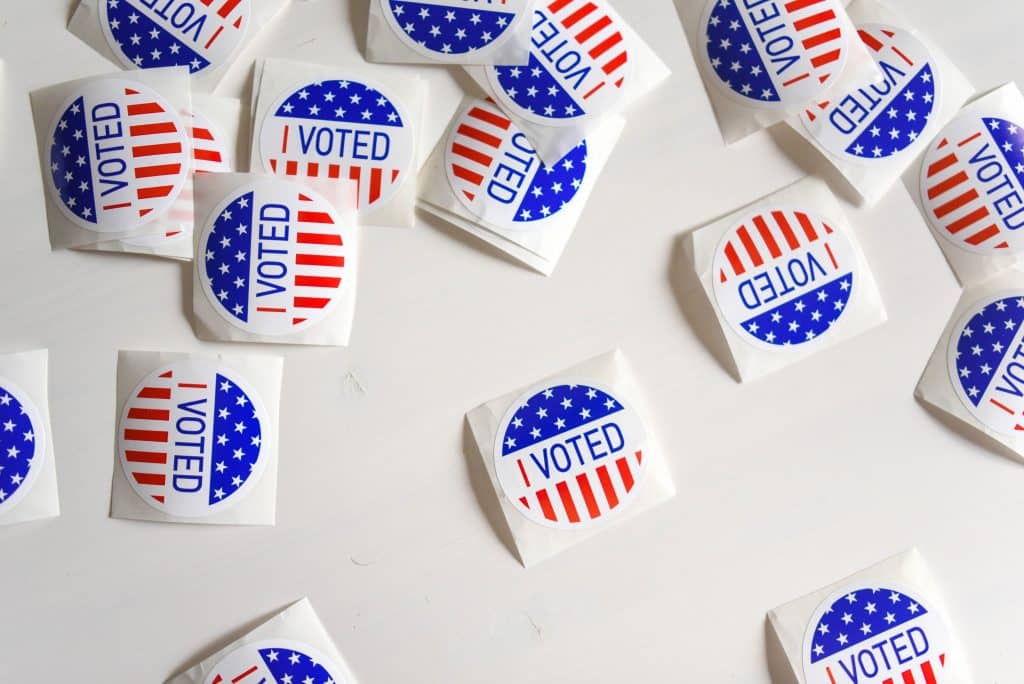*Editor’s Note: The “Views from NAU” blog series highlights the thoughts of different people affiliated with NAU, including faculty members sharing opinions or research in their areas of expertise. The views expressed reflect the authors’ own personal perspectives.
 By Sara Rinfret
By Sara Rinfret
Associate Vice Provost, Faculty Affairs & Professor, Politics & International Affairs
Dr. Rinfret is a nationally recognized scholar in regulatory policy, environmental policy and public administration. She has published eight books, several book chapters and more than 40-peer-reviewed articles. Her latest books, out this year, are U.S. Environmental Policy in Action and The Environmental Case. Translating Values into Policy.
In many countries across the globe, voting is mandatory. Voting in the United States is a choice for most Americans 18 years of age or older. More than 150 million Americans voted in the 2020 presidential election—a record turnout. Yet almost a third of eligible voters do not vote in U.S. elections. Inevitably, voting is an act of civic participation that informs local, state and federal policymaking. In celebration of National Voter Registration Day, we document several reasons why we should register to vote.
Why voting matters
- People fought and died for our right to vote. The United States Constitution did not originally specify who could vote, leaving it to the states to decide. In most cases, only landowning White men were eligible to vote. As a result, people died for our right to vote in the United States. Black men were not able to vote until 1869 and women in 1920, with the passage of the 15th and 19th amendments.
- Your one vote matters. A myth about voting is that one person’s vote does not have an impact on electoral outcomes. Casting your vote can make a difference in the result of an election. Presidential and statewide races can be determined by only a few votes.
- Because we can. Voting is a choice and luxury. We can decide who to elect, re-elect or un-elect at the local, state and federal levels.
Understanding the nuances of voting
Two primary reasons why people do not vote or register to vote are:
- the amount of time available
- lack of understanding of issues or candidates on the ballot
To address these concerns, we recommend a series of quick-and-easy resources:
Registering to vote resources: Registering to vote should take approximately five minutes and in Arizona can be completed online.
- Where can I register to vote?
- NAU guide
- Go to your local post office and complete a voter registration form in-person
- Stop by your local election office to print information or complete online using their link
- I don’t understand the issues or the deadline to register to vote.
- NAU Student Affairs Office has a helpful website and voting guide.
- Each state has its own deadline to register to vote. Locate your state and how to vote by using this website or NAU’s helpful guide.
- I am a student at NAU and want to vote in Arizona, not my home state.
- I am a student at NAU and want to vote in my home state, not Arizona.
- The Arizona Secretary of State’s Office offers a Voter Election Guide or USA.gov provides a sample ballot prior to a given election to understand who is running for office, and the ballot issues. These are non-partisan resources (not provided by a political party) to inform our own decision-making.
Regardless of your background, consider taking five minutes to register to vote or encouraging your friends, family, colleagues and neighbor to do so. If you care about your local, state or national community, your single vote does shape the direction of the United States. Voting is an act of public participation, which is essential for a vibrant democracy.
Top photo credit: Element5 Digital on Unsplash




 By Sara Rinfret
By Sara Rinfret